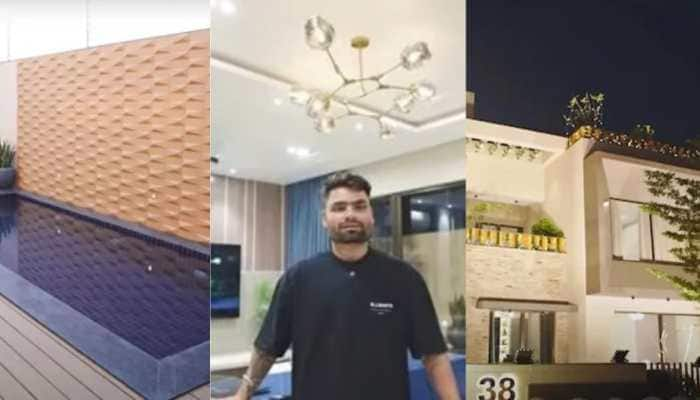Johnny Hallyday: France's troubled Elvis
"There is something of Johnny in all of us," said the French presidency in a statement after his wife Laeticia announced his death early on Wednesday.
- He drove his young fans wild, attracting 1,00,000 to a Paris square in 1963 and prompting scenes of hysteria until then unseen in a conservative France led by the stiff General Charles de Gaulle.
- Former president Nicolas Sarkozy, an adoring fan who once tried to tempt him back from tax exile in Switzerland, said he represented "part of our personal history... Our memories and emotions."
- Known simply as Johnny, Hallyday sold more than 100 million albums and headlined 50 major tours.
- The last year this summer, he teamed up with veteran French rockers for the 'Old Scoundrels' tour.
Trending Photos
) Image Courtesy: Instagram
Image Courtesy: Instagram Paris: Johnny Hallyday, France's king of rock who has died aged 74 after a battle with lung cancer, was a leather-clad would-be Elvis who earned love and scorn over five decades spent belting out American rock 'n' roll.
While he was never taken seriously abroad, Hallyday was by far the best-known rocker in France.
"There is something of Johnny in all of us," said the French presidency in a statement after his wife Laeticia announced his death early on Wednesday.
Former president Nicolas Sarkozy, an adoring fan who once tried to tempt him back from tax exile in Switzerland, said he represented "part of our personal history... Our memories and emotions."
Known simply as Johnny, Hallyday sold more than 100 million albums and headlined 50 major tours. The last year this summer, he teamed up with veteran French rockers for the 'Old Scoundrels' tour.
Inspired by Elvis Presley, he broke from France's classic 'chanson' tradition in the late 1950s, rocking like his US idols and summoning the rebellious spirit of James Dean with his quiffed hair and leathers.
He drove his young fans wild, attracting 1,00,000 to a Paris square in 1963 and prompting scenes of hysteria until then unseen in a conservative France led by the stiff General Charles de Gaulle.
"He embodies the emergence of French youth culture and rock 'n' roll," said Serge Kaganski of the French music magazine Les Inrockuptibles.
Defying the view that France, then a land of crooners and jazz, could not rock, Hallyday had his big break with the 1960 hit 'T'aimer Follement' (Makin' Love) and later belted out French versions of songs such as Jimi Hendrix's 'Hey Joe'.
Even as the decades rolled by and politicians began to curry his favour, he kept his bad-boy image alive with a colourful private life, ticking off many rock 'n' roll rites of passage.
He attempted suicide in 1966, collapsed on stage in 1986 and married five times, twice to the same woman, the daughter of one of his oldest friends and songwriters.
In 1998 he admitted taking cocaine and suffering a difficult childhood with an alcoholic father who first abandoned the family when Johnny was just eight months old.
He settled down for a while with the actress Nathalie Baye, with whom he had a daughter, Laura Smet, who followed her mother onto the big screen.
By then Hallyday had married model Laeticia Boudou, who was 31 years his junior, and adopted two Vietnamese children.
Born Jean-Philippe Leo Smet to a Belgian father and French mother in Paris on June 15, 1943, the singer was brought up by his aunt, an actress, and mentored by an American relative, Lee Halliday, from whom he took his stage name.
Often ridiculed by cartoonists and television comics as a man of little intellect, Hallyday had brief moments of kudos, including starring in films by directors Jean-Luc Godard and Patrice Leconte.
Further acclaim came in 2009 for his performance as a retired hitman out to avenge his murdered family in Johnnie To's thriller 'Vengeance'.
Critics described him as 'mesmerising', with The New York Times saying that ''with his ruined face and pale snake eyes Mr Hallyday holds the screen''.
"I'm not nearly as dumb as people think," Hallyday told AFP. "I think this vision of me belongs to the past."
Stay informed on all the latest news, real-time breaking news updates, and follow all the important headlines in india news and world News on Zee News.
Live Tv







)
)
)
)
)
)
)
)
)
)
